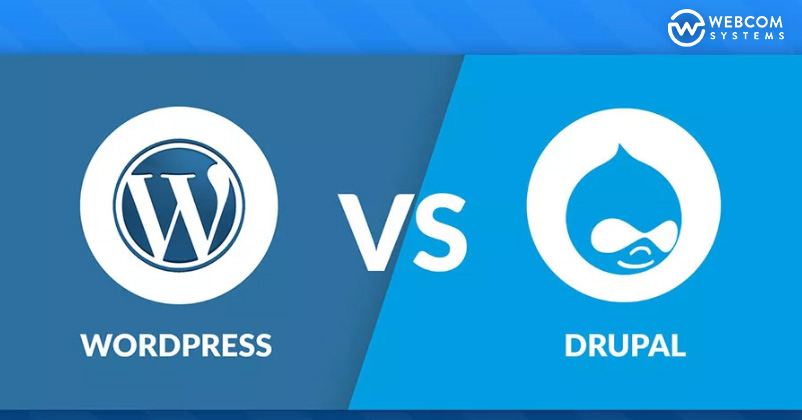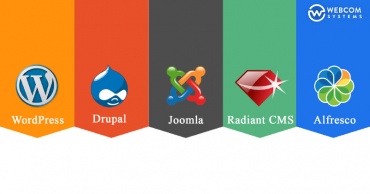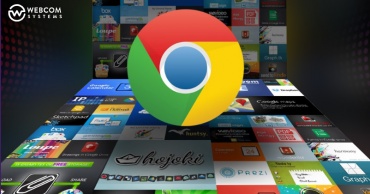When it approaches content management systems, two names stand out: WordPress Vs Drupal.
Each has its supportive community, an extensive list of favourite websites that it powers, as well as a wide variety of features and functionality.
It is widely known that WordPress is simpler to use and more familiar, as compared to Drupal that has a modest community and a steeper training curve.
But aside from that, what really divides the two? In this article, We will try to distinguish WordPress vs. Drupal over a given set of fields.
WORDPRESS VS DRUPAL: 4-ROUND COMPARISON
#1. SEO
DRUPAL:
SEO is generally pretty CMS-agnostic. That means both WordPress and Drupal are useful for SEO – depending on the content, of course.
However, Drupal has a higher capacity for large, high-content sites, which means it may have the small edge for more important sites – and is more customizable (if you know what you’re doing, of course!).
WORDPRESS:
With nifty plugins such as Yoast’s SEO, you can have a search-engine-optimised site up and running swiftly.
WordPress definitely make SEO a little simpler and, dare I say it, dummy proof. But on the whole – both Drupal and WordPress have a comparable potential to host a well-optimised website.
They just do it a little differently. Drupal has the advantage for larger sites and WordPress for the less tech-savvy.
#2. SECURITY
DRUPAL:
Seldom hacked or compromised, Drupal has a well-justified reputation for being an extremely secure CMS.
Vulnerabilities are posted on the Drupal.org website and patched as promptly as possible. There’s a reason why high-profile sites – The Economist, Warner Brothers, even the White House! – Use Drupal.
You seldom listen of Drupal websites being hacked – and that’s as well, they rarely are.
WORDPRESS:
Unfortunately for WordPress with its plenty of plugins, the platform is moderately exposed to hackers and third parties.
It’s also the hugely popular CMS, so it’s a much steeper target. However, if you’re willing to install security plugins to (ironically) fill in the security gaps left by other plugins, WordPress is relatively secure.
The WordPress community is rapid to respond to any such issue, but there is still a window for error as an old plugin can compromise a website.
Since the number of such plugins and themes is smaller for Drupal, the window for error too becomes smaller.
#3. AFFORDABILITY
DRUPAL:
Hiring a developer can often cost a little more than a WordPress developer, only due to supply and demand.
Drupal is a serious CMS for serious businesses so that the extra cost will be insignificant for most. Either having a somewhat more limited range of themes and plugins, Drupal is less likely to charge for both in comparison to WordPress.
When you take into consideration the flexibility and capabilities of the platform, it’s pretty affordable for what you get.
WORDPRESS:
WordPress is created on being budget-friendly. With millions of free plugins and handfuls of free themes, it’s an excellent CMS for the budget-conscious.
You can also recruit a developer if you require even more customizability. Due to the demand of the CMS, these can be relatively affordable, too.
#4. EASE OF USE
DRUPAL:
Drupal is a lot more focused on the tech-savvy, and it shows. It has a somewhat complicated back-end.
Despite beginner-friendly packaged ‘bundles’ – editing something behind content comes with a steep learning curve. Its interface is, yet, somewhat responsive and easy to use. Check out the official Drupal walkthrough.
WORDPRESS:
Taking 5 minutes to install, and integrated with multiple websites hosting services, one of WordPress’s principal strengths is its ease-of-use.
Don’t need to get stuck down in CSS, HTML, and PHP? A simple, streamlined user interface is all you require to focus on.
However, if you want to get more in-depth with customizing your site, you can do so, too. Here’s a detailed guide on installing WordPress.
THE VERDICT
In conclusion, both are excellent content management systems, that host hugely popular, high-traffic brands and businesses. It’d be immaturity to say ‘Drupal/Wordpress is the better CMS.’ They are, nevertheless, useful in different ways.
WordPress is slightly cheaper and simpler for beginners or the code-illiterate. Drupal is likely the top choice for absolute control, customization, and flexibility for larger sites and the code-savvy.
In the end, the CMS you choose will rely on your requirements for your website. They’re also both free to download! Try them both out and see what you prefer.
If you want any guidance creating or setting up your site on either Drupal or WordPress, get in touch with WebCom!
Recommended Read: 5 Best Content Management Systems for Web Designers




